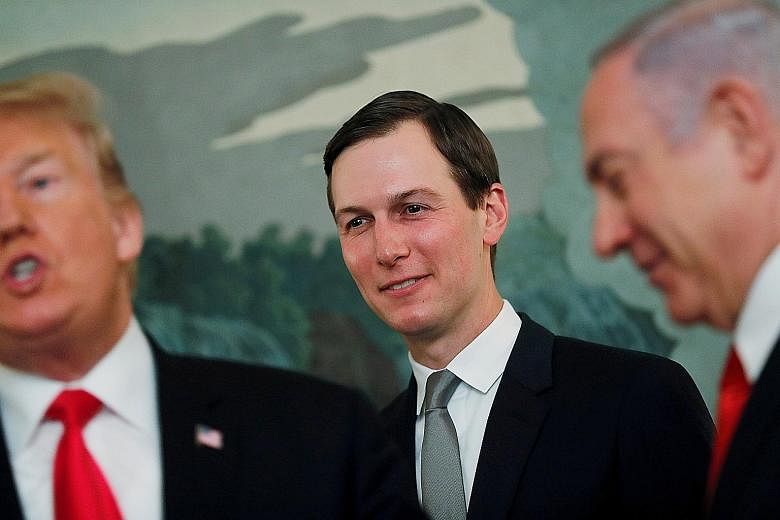Mr Jared Kushner, the son-in-law of United States President Donald Trump and Special Envoy for Peace in the Middle East, has shown that he writes well.
Last Saturday, just before the start of an economic conference in Bahrain, the White House released his vision for Palestine. The plan, called Peace To Prosperity, represented "the most ambitious and comprehensive international effort for the Palestinian people to date", the 40-page document touted.
Already a subscriber? Log in
Read the full story and more at $9.90/month
Get exclusive reports and insights with more than 500 subscriber-only articles every month
ST One Digital
$9.90/month
No contract
ST app access on 1 mobile device
Unlock these benefits
All subscriber-only content on ST app and straitstimes.com
Easy access any time via ST app on 1 mobile device
E-paper with 2-week archive so you won't miss out on content that matters to you


